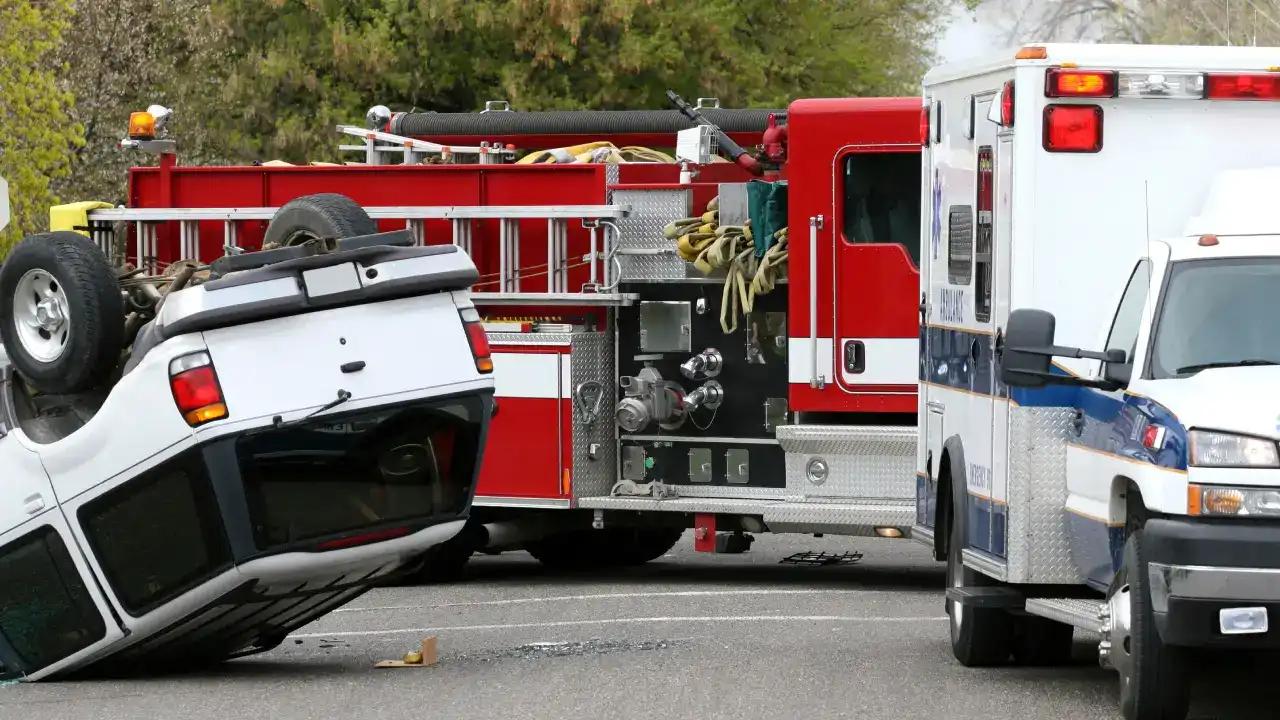Steps to take after a car accident:
- Check for Injuries
After a car accident, your first priority is safety. Assess yourself and others involved for any injuries. If someone is hurt, call 911 immediately. Even if injuries seem minor, seek medical attention promptly, as symptoms like whiplash or internal injuries may appear later. - Ensure Safety at the Scene
If possible, move vehicles to a safe area, such as the side of the road, to avoid obstructing traffic. Turn on hazard lights and set up emergency triangles if available. If the vehicles cannot be moved, stay inside if it’s safe and wait for emergency services. - Call Emergency Services
Whether injuries are apparent or not, contacting emergency services is always a wise decision. Involving the police helps create an official accident report, which can be crucial for insurance claims or legal disputes. - Document the Scene Thoroughly
Use your phone to take photos and videos of the accident scene. Include vehicle damages, license plates, road conditions, traffic signs, skid marks, and any injuries. Detailed documentation ensures you have strong evidence when filing insurance claims or resolving disputes. - Gather Witness Information
Look for bystanders or passersby who witnessed the accident. Politely ask for their names and contact details. Their statements could serve as valuable evidence if there’s disagreement over what happened. - Exchange Information with Other Drivers
Share your name, address, phone number, and insurance details with all involved parties. Record their vehicle make, model, and license plate numbers. Keep the conversation polite and focused solely on exchanging information—avoid discussing fault. - Avoid Admitting Fault
When speaking to other drivers, witnesses, or law enforcement, avoid making statements that could be interpreted as accepting blame. Stick to factual descriptions of the incident and let insurance companies and investigators determine liability. - File a Police Report
In most states, filing a police report is required for accidents involving significant damage, injuries, or disputes. Even if the accident seems minor, it’s advisable to file a report. Request a copy for your records as this can be critical in resolving claims or legal issues. - Notify Your Insurance Company
Report the accident to your insurance provider promptly. Most insurers offer 24/7 reporting options. Provide them with all necessary details and avoid making statements about fault. Be honest, concise, and cooperative throughout the claims process. - Seek Medical and Legal Assistance
After addressing immediate concerns, follow up with a healthcare professional to rule out hidden injuries. If needed, consult a legal professional to understand your rights and protect your interests, especially in cases involving disputes or serious injuries.
Bonus Tips for Post-Accident Preparedness:
- Keep an Emergency Kit in Your Vehicle: Equip your car with essentials like a first-aid kit, flashlight, and basic tools. These items can make handling emergencies much easier.
- Consider Property Damage in Public Spaces: Accidents in parking lots, gated communities, or near commercial buildings can sometimes involve automatic gates or barriers. If a gate is damaged during the collision, it should be inspected and fixed by a gate repair professional to restore functionality or maintain safety for others.
- Stay Calm and Composed: Remaining calm after an accident is crucial. It allows you to think clearly, assess the situation, and take the necessary steps without unnecessary stress.
- Understand Your Insurance Coverage: Familiarizing yourself with your insurance policy beforehand will help you navigate the claims process more smoothly and avoid unexpected surprises.

